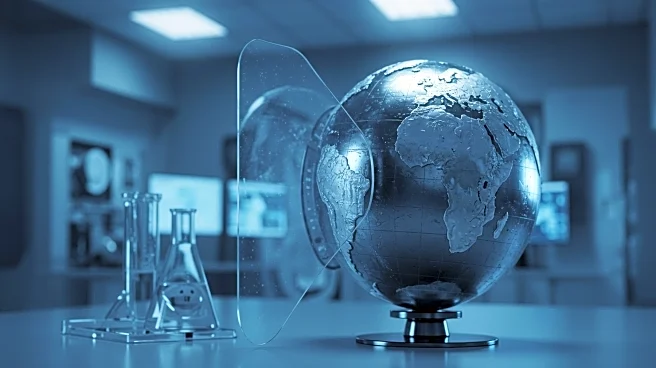What's Happening?
Iran's foreign minister has stated that the country cannot completely sever ties with the International Atomic Energy Agency (IAEA), despite new legislation requiring high-level security approval for inspections. This announcement follows a period during which IAEA inspectors have been unable to access Iranian nuclear sites, a situation exacerbated by recent military actions by Israel and the U.S. Iran's parliament recently passed a law suspending cooperation with the IAEA, accusing the agency of facilitating the attacks through a report that led to Iran being declared in breach of non-proliferation obligations. Despite this, Iran has indicated that it will continue discussions with the IAEA, with further negotiations expected soon.
Why It's Important?
Iran's decision to maintain some level of cooperation with the IAEA is crucial for international nuclear oversight and non-proliferation efforts. The IAEA plays a vital role in monitoring nuclear activities and ensuring compliance with global standards. Iran's partial cooperation helps mitigate the risk of unchecked nuclear development, which could lead to increased regional tensions and potential conflict. The situation highlights the delicate balance between national sovereignty and international regulatory frameworks, impacting diplomatic relations and security policies worldwide.
What's Next?
Iran is expected to continue negotiations with the IAEA, potentially leading to a compromise that allows for resumed inspections under new conditions. The outcome of these talks will be pivotal in determining the future of Iran's nuclear program and its relations with the international community. Stakeholders, including the U.S., Israel, and other global powers, will closely watch these developments, which could influence broader geopolitical strategies and alliances.










